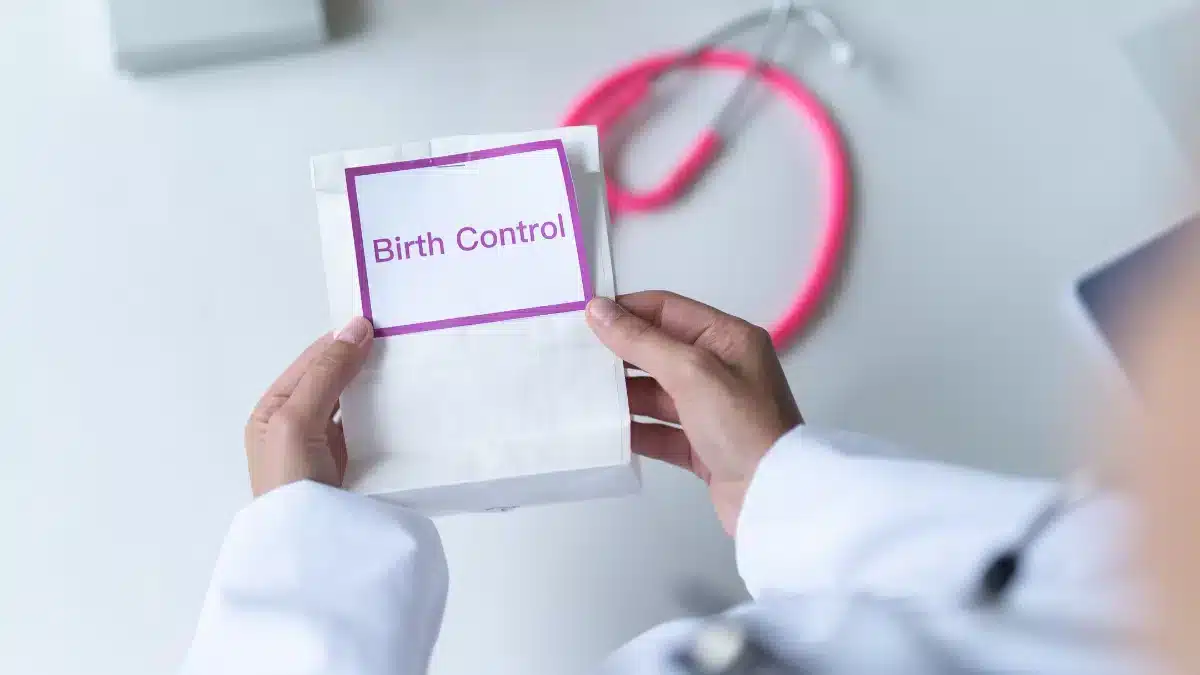Vaginal Dryness and Birth Control: Navigating Intimate Health
Vaginal dryness happens when there is a lack of natural lubrication in the vaginal tissues.
This can lead to discomfort, itching, pain during intercourse, and an increased susceptibility to irritation or infection.
While there are various factors contributing to it, one aspect that is often overlooked is the certain methods of birth control.
Some birth control options may lead to a decrease in vaginal moisture as a potential side effect.
This article will discover the association between vaginal dryness and birth control.
We will also discuss some alternative contraceptive options that do not cause dryness.
Birth control and vaginal dryness
Several birth control methods, particularly hormonal contraceptives, can impact the body’s hormonal balance.
It can potentially lead to changes in vaginal moisture.
Hormonal birth control includes oral contraceptive pills, hormonal patches, injections, and vaginal rings.
These methods often contain synthetic hormones like Estrogen and Progestin, which can affect the body’s natural lubrication.
Birth control that does not cause dryness
Non-hormonal birth control offers a valuable alternative for individuals who experience vaginal dryness as a side effect of hormonal contraceptives.
These methods not only provide effective contraception but also avoid the hormonal fluctuations that can impact vaginal lubrication.
Here are a few non-hormonal birth control options:
Barrier methods

Barrier methods are contraceptive techniques that prevent sperm from reaching an egg.
They include male and female condoms.
Male condoms are worn over the penis. It creates a barrier that blocks sperm from entering the vagina.
They also provide protection against STIs (Sexually Transmitted Infections).
Female condoms are placed inside the vagina. They act as a barrier in preventing the sperm from reaching the cervix.
Spermicide
Spermicides come in various forms, such as creams, foams, gels, films, tablets, or suppositories.
They comprise chemicals that immobilize or block sperm, serving as an additional layer of protection.
Spermicides are often used with condoms or other barrier methods for increased efficacy.
Copper Intrauterine Devices (IUDs)
Copper IUDs are small, T-shaped devices inserted into the uterus by a healthcare provider.
They work by releasing copper ions, which are toxic to sperm, preventing fertilization.
This makes them a suitable option for those who wish to avoid hormonal contraceptives.
If the vaginal dryness issue persists or becomes more severe, consider consulting with a specialist such as a gynecologist.
There can also be some other reasons behind this problem.
A doctor can offer guidance tailored to your specific needs, helping you find a solution that works best for you.
How to fix dryness from birth control
Experiencing vaginal dryness as a side effect of birth control can be uncomfortable.
However, there are several strategies to address this issue.
It’s important to note that their effectiveness may vary from person to person.
Here are some general suggestions:
Communication with healthcare providers

If you’re experiencing vaginal dryness while on birth control, the first step is to discuss this issue with your healthcare provider.
They can help identify the specific birth control method causing the dryness and explore alternative options.
Use lubricants
The use of lubricants can provide immediate relief from vaginal dryness during intimate moments.
These products can be applied externally or internally to enhance comfort and reduce friction.
Vaginal moisturizers or creams
Regular use of vaginal moisturizers or creams can help maintain hydration over time.
These products are different from lubricants.
It is advised to consult healthcare providers before using any product for vaginal dryness.

Erase discomfort, embrace relief – conquer STDs swiftly!
Reclaim your health with superior antibiotic solutions from WowRx.
Premarin Vaginal Cream 0.625 mgHydration for vaginal health
Proper hydration is necessary for overall health, including vaginal health.
Make sure you are drinking enough water throughout the day. It will help maintain hydration levels in your body.
Conclusion
Hormonal contraceptives, while effective, may impact natural lubrication, leading to dryness.
Non-hormonal birth control alternatives like barrier methods and copper IUDs offer solutions without affecting vaginal moisture.
There are various strategies, including lubricants and moisturizers, that can help address vaginal dryness.
Open communication with doctors and exploring alternative birth control methods can contribute to a comfortable intimate experience.
Frequently Asked Questions
What causes vaginal dryness in individuals using birth control?
Vaginal dryness can result as a side effect of some hormonal contraceptives such as birth control pills, patches, or certain Intrauterine Devices (IUDs). These methods can alter hormone levels, affecting natural lubrication.
Are there any birth control options that do not cause vaginal dryness?
Yes, non-hormonal birth control options like barrier methods (condoms) and copper IUDs are less likely to cause vaginal dryness. Discussing these alternative choices with your healthcare provider can help you find a suitable option.
How to fix dryness from birth control?
To address vaginal dryness, consider using water-based or silicone-based lubricants or vaginal moisturizers. It is best to first consult with your healthcare provider. They may suggest alternative birth control methods or adjustments to alleviate the issue.
What contraceptive methods do not cause vaginal dryness?
Non-hormonal contraceptive methods, including barrier methods like condoms and copper Intrauterine Devices (IUDs), are less likely to cause vaginal dryness. These options offer effective contraception without the hormonal fluctuations that can impact natural lubrication.
WowRx uses only high-quality sources while writing our articles. Please read our content information policy to know more about how we keep our content reliable and trustworthy.






